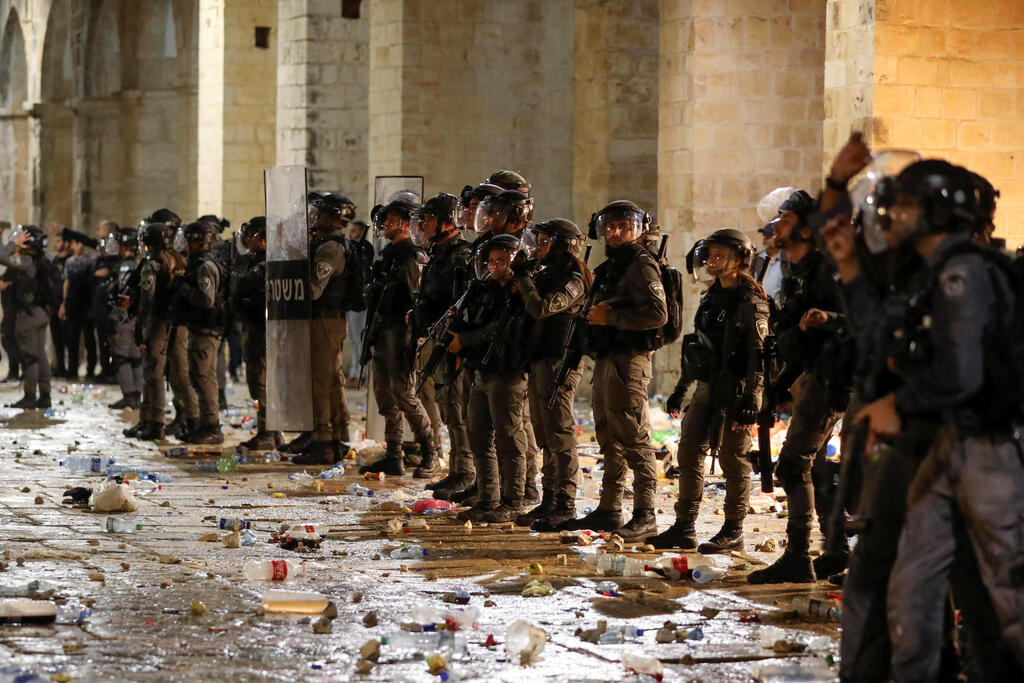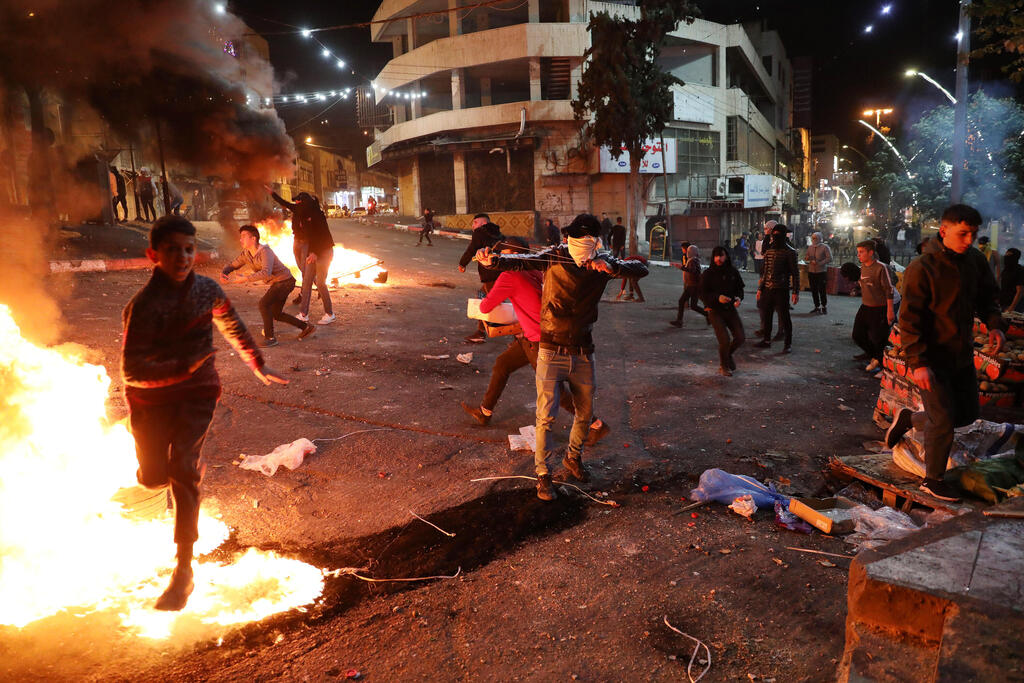Getting your Trinity Audio player ready...
The current tense atmosphere is not much different from the one we experienced last May and many other similar instances in the past.
While on other fronts — like Lebanon and Syria — there are circumstances that maintain a sense of stability, total calm on the Palestinian front is impossible.
On the one hand, a comprehensive peace agreement according to the two-state solution is unfeasible. And on the other, the Palestinians in Gaza, the West Bank, and Jerusalem can't accept the existing situation as permanent.
These circumstances leave us with two possible courses of action: Either examining alternative solutions to the conflict and avoid obsessing over the only direction pursued since 1993 or "managing the conflict."
Managing the conflict could be likened to standing still on top a large rubber ball. Any wrong move could send you flying to the ground.
In practice, this requires Israel to understand the interests of the other actors.
For example, after 15 years, the current government realized that the main motive of the administration in Gaza is not religious, political, or military. Its most important and urgent drive is economic.
The leadership in Gaza understands that its rule is at risk if it fails to improve, by even a little bit, the state of infrastructure, employment, energy, and water resources.
Israel's current policy, which both facilitates a controlled increase in the number of Gazan workers that enter the country and infrastructure projects, is the right move even if it requires constant give-and-take and cooperation with the leadership in Gaza. We can't achieve our goal, which is security and stability without a price, and that price is a de-facto recognition Hamas' rule can work to our advantage.
Additionally, Israel must recognize the Jordanian interest which is upholding the security cooperation with Israel while also easing tensions in Ramallah and Amman through anti-Israeli statements. This format has been working like clockwork for 28 years now, and it would be best if it continues so.
Third is the interest of every Islamic actor — be it Palestinian, Jordanian, Saudi, Turkish, and even Emirati — to stand out as the protector of the al-Aqsa Mosque. On this matter, Israel could have done more. Not give in to the rioters, but do what is supposedly expected of it, and that is to maintain the status quo.
But pray tell, what exactly is this status quo? In order to pull the rug under the feet of our detractors, even in part, we had to do a simple thing over a week ago: the prime minister had to give a speech in English in which he states that Israel is committed to the status quo and detail what it encompasses — what is allowed and what is forbidden. An unequivocal statement in advance would have saved us the need to "explain" why we are on the right side.
The fourth interest is the silent majority of Palestinians in the West Bank. This majority expects to receive more work permits and other relives. This majority, as well as the Palestinian security apparatus, can put up with Israeli military operations, as long as they are relatively focused and as long as the number of fatalities stays low.
It is easy to be tempted to take harsher actions, more "Zionist" or righteous. But if the purpose is to "manage the conflict", then it'd be better to make a clear distinction between real Israeli interests and actions whose cost far outweighs their benefits. It's very easy to "fall off the ball", whether it will be another operation in Gaza or more riots across the West Bank, but the trick is to avoid it altogether.




